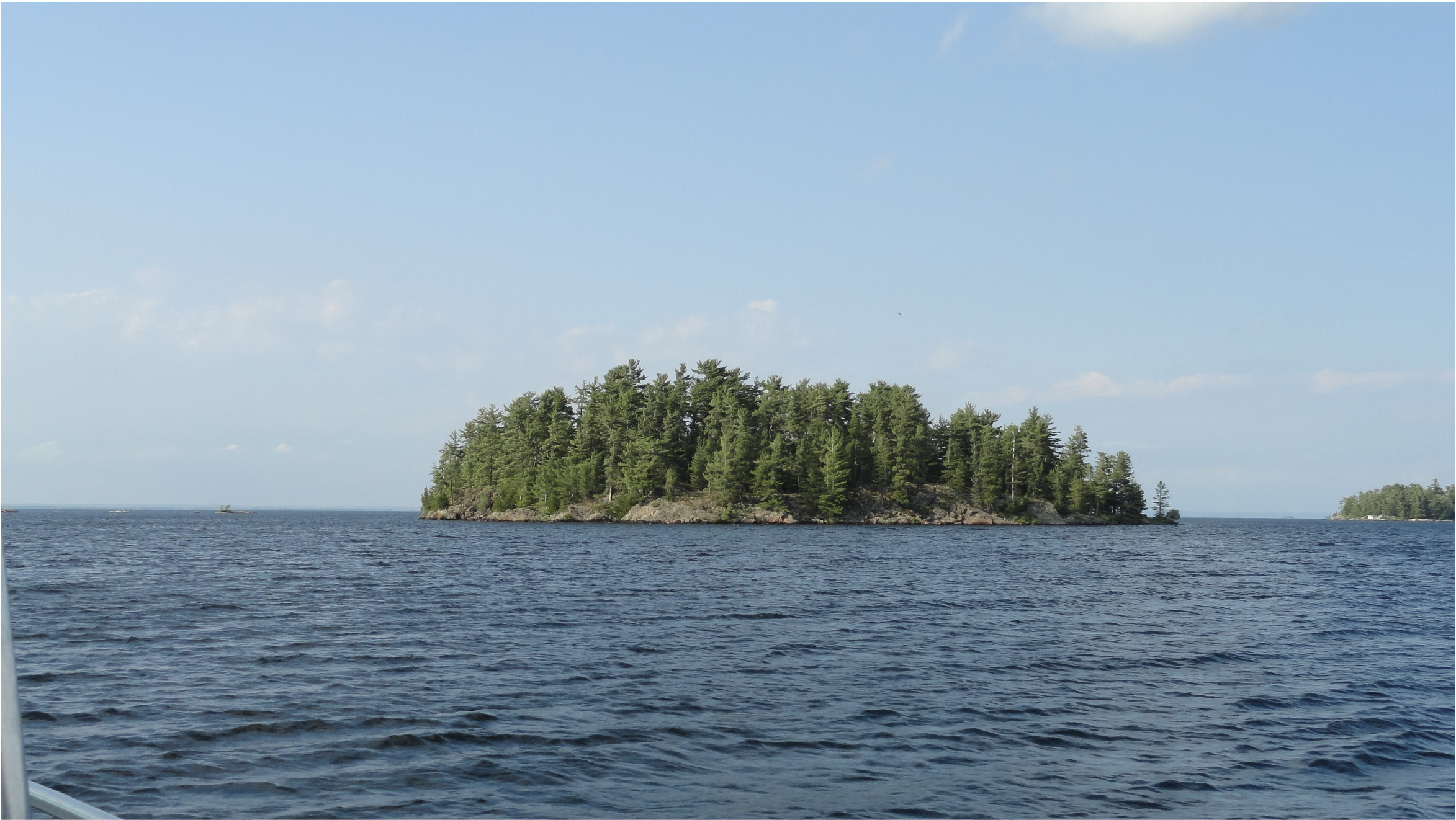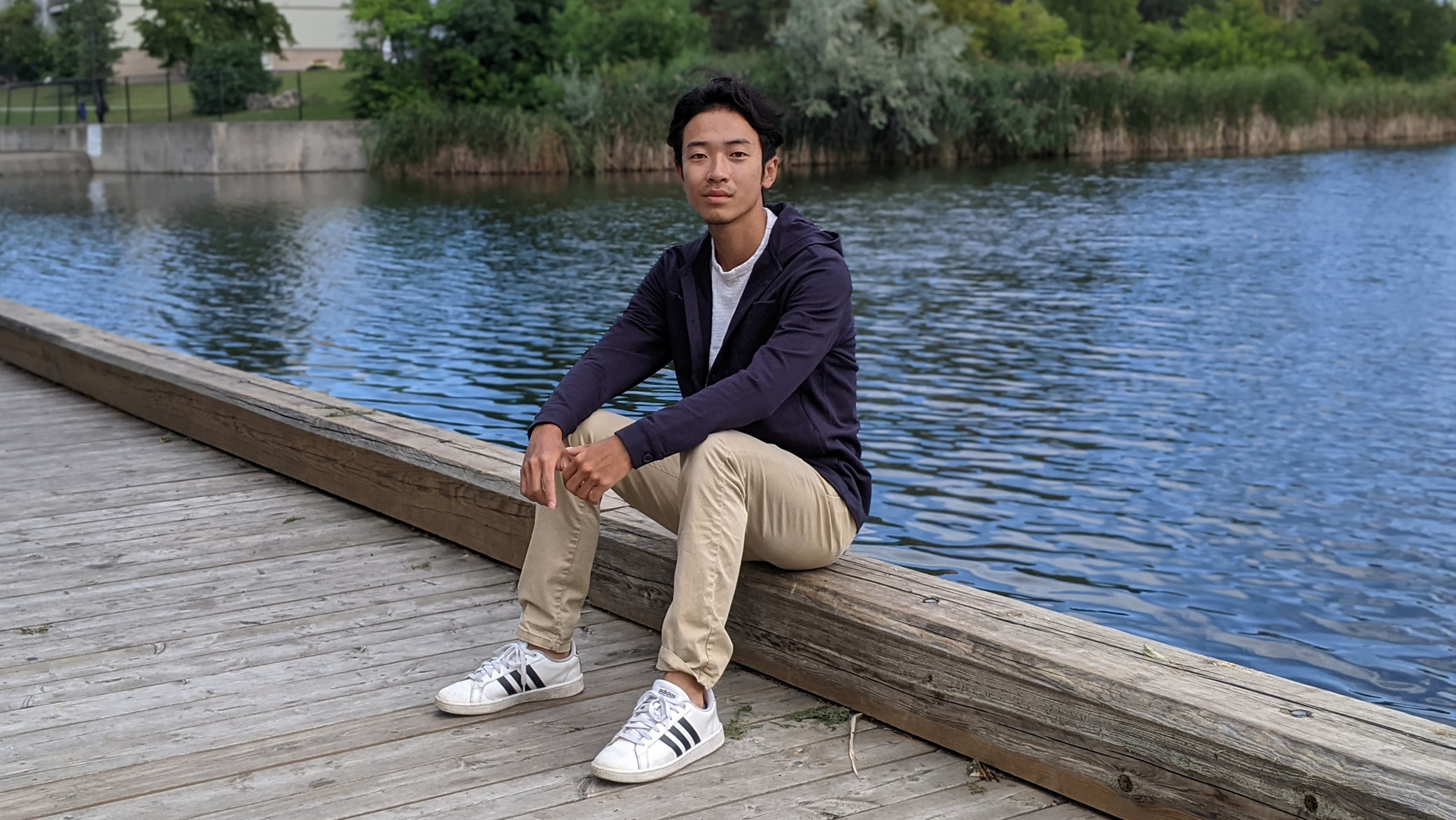Undergraduate students are often curious about research when they enter University. I can recall my time as an undergraduate research student back in 2012 when I joined the Planet Earth Lab,I had no idea what to expect! My task was to assist with ongoing work on glacial lake bottom sediments across Ontario. This included managing past datasets, investigating the literature, and collecting new data using a sub-bottom profiler which I had never heard of before my research started. The sub-bottom profiler was a type of marine seismic technology for gauging the pattern and structure of the lake bottom. As a result, we conducted several weeks of surveying, with an enviably view (Figure 1), as a part of this project.

Figure 1- View from the office!
Looking back, it was an eye-opening and rewarding experience (I even starred in my own mini-movie). What I didn’t expect was how much I would have to learn on-the-go. I gained new skills which I wouldn’t have considered important prior to the experience, such as coding.
Since many undergraduate students are eager to get involved in research or learn more about what it entails, I thought it would be useful to ask a more recent undergraduate research students about their experience.
A sit down with Patrick

Figure 2- Patrick a 4th year geoscience student who has spent the summer at the Planet Earth Lab
Andrew (A): Hi There Patrick, can you tell the readers a bit about yourself?
Patrick (P): I’m a 4th year geoscience student. I am passionate in learning about Earth processes and how human activities will alter the environment in which we live in. The geoscience program helps me to understand climate processes, landscape formation and various mitigation measures to preserve our environment from human activities.
A: It appears you are learning a lot, what are you working on for your research project?
P: I am working on the project “The Glacial Map of Canada” identifying glacial landforms to interpret how the glacier moved in the past. This is important for us to understand how modern glacier move and their dynamics in different parts of the world.
A: That seems like a very interesting project, were there any unexpected or interesting results?
P: As our understanding of glacial landforms identifications evolve, our interpretation begins to shift. Combining this with other knowledge about the local geology and tectonic settings the story of the region's glacial history becomes clearer.
A: So, in terms of research, were there any aspects of doing research you were unaware of?
P: For my work, in particular, I used CBRS which is a script that draws glacial landforms autonomously. This took way longer than I expected to process. So sometimes the technical aspect took longer than I anticipated, and with this I got a view of the practical issues that can arise with research analysis.
A: Students often ask about how they can best position themselves to get involved in research. As you are now in the latter years of your degrees, what would you tell your first year self to prepare yourself for your undergraduate research experience?
P: Definitely know how to use ARCGIS and have a solid understanding of glacial geology. Any other environmental science courses (eg. sedimentology) can help you understand the context even better.
A:So the courses you took in earlier years of your degree really prepared you for this research experience by the sounds of it. Also, you mentioned everyone is very friendly in the lab, are there any fond memories you have from your time in the lab?
P: I enjoyed going outdoors to conduct fieldwork with everybody. Everyone was very helpful to me and I learnt a lot more about environmental science in general whether it’s inside or outside.
A: What have you learned about yourself during this process (interests, skills, etc…)?
P: I learnt that computer software skills are essential to conduct research and it is applicable anywhere else. It is also important to communicate your findings and present it to your peers in an effective and concise manner.
Final words of advice
A: What general advice would you give other students interested in getting involved in research during their undergraduate years?
P: Don’t be afraid to ask around for help and questions, everyone in the lab is very kind and will help you with your questions.
This final piece of advice echoed the sentiments that Prof. Eyles himself mentioned when I asked him about general advice to students interested in getting involved in undergraduate research. He noted
‘Having undergraduates in the Planet Earth lab is in many ways the most important part of my job as it is a key part of training for graduate school whether at UTSC or elsewhere. You have to think for yourself and be intrigued by what’s out there and above all be motivated to learn by oneself and make a contribution to knowledge. At the end of your undergraduate degree, you should know your capabilities for self-discovery and not wait until you are grad school to find out. The secret to success is get involved early in your undergraduate degree, become familiar with researching a topic, structuring and writing research papers and find out if it’s for you. The professors are there to help you become a professional so don’t be shy!’